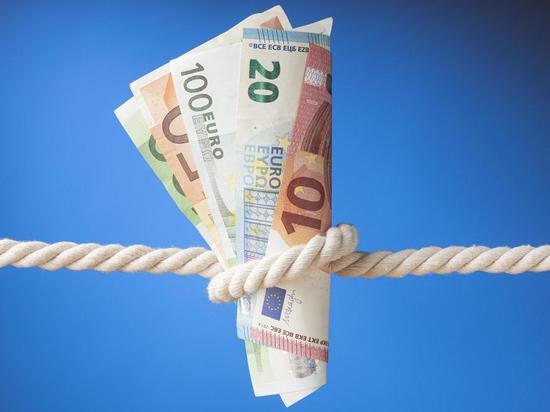Despite the best efforts of politicians and financial watchers, there are currently few indications of a change in consumer prices. Supermarket shoppers are complaining about exorbitant prices for cucumbers and peppers. When will prices finally drop?
Who hasn’t promised the Germans that inflation will soon return? One can recall here the words of the director of the ECB, Christine Lagarde, who declared during the reception of the new year of the Deutsche Börse: “We must reduce inflation. And we will.” A few days later, German Economics Minister Robert Habeck announced: “We have broken the inflation trend. At that time, the two politicians only had information about the inflation rate in December 2022. It was 8.1% then, which was much more pleasant than the 8.8% recorded in November.Then it seemed that there was a turning point.
But today, there is no indication that the trend has reversed. Instead, supermarket shoppers are complaining that cucumbers cost €3.49 and peppers just under €10. Experts from the Federal Statistical Office also calculated the average price increase in January and February – each month it amounted to + 8.7%, compared to the same period last year. Although the interest rate hike by the ECB, as well as the slowdown in electricity prices and the federal government’s tax cuts should have reduced inflation. Why it does not work ?
First of all, it should be noted that Habek and Lagarde are already fighting effectively against price increases. Several government measures have thwarted the rise in energy prices, such as the abolition of the electricity tax, the reduction of the tax on gas and district heating and the slowing down of electricity tariffs. Despite this, in February 2023, oil, gas, electricity, etc. were about 19% more expensive than in February 2022.
May drop from March
One of the reasons why inflation remains so high is what are called second-order effects. The increase in energy tariffs has led, among other things, to an increase in the costs of producing and transporting other goods. As a result, food costs were more than 20% higher than the same month last year.
But there are also small reasons for hope. So far, inflation has remained so high because inflation always compares the prices of the current month with the prices of the same month of the previous year. For example, in February 2022 energy tariffs were already higher than in Corona times. But a really serious leap took place only in March, after the start of the conflict in Ukraine. “In future, the current price level will be compared to last year’s level, which in itself will have a moderating effect on the inflation rate,” confirms Friedrich Heinemann, economist at the Center for European Economic Research (ZEW ).
Expectations drive prices up
In addition, a slowdown in gas and heating prices comes into effect from March, which works according to the same mechanism as the already existing slowdown in electricity prices. From March, a limited tariff – gas up to 12 cents per kWh, district heating up to 9.5 cents per kWh – is valid for 80% of consumption.
According to Heinemann, the positive trend, which should start in March, does not matter compared to the long-term dynamics of inflation. To date, “confidence in a stable price future for the eurozone remains undermined”.
In anticipation of a further rise in inflation, people will begin to demand higher wages, which, in turn, may encourage manufacturers to raise prices. In such a wage-price spiral, inflation will take root. The Bundesbank recently warned against such a dynamic, while noting that Germany was not there yet.
Monetary policy in action
On the other hand, the Bundesbank’s big sister, the ECB, already expects inflation to fall. ECB chief economist Philip Lane told Reuters news agency: “Retail prices are still very high. But the value of intermediate goods has so far been a good indicator of price pressure. The fact that it is falling, in part because supply is rising, suggests that energy, food and goods inflation will come down significantly.
This is also indicated by the first consequences of the increase in the key rates of the ECB. We can already see significant increases in lending rates, lower house prices and higher lending rates, all of which drive down demand for energy and other commodities, Lane says.
In short, price pressures diminish while government support increases. This is a good sign, although it will take time for inflation to approach the 2% target again.
Germany says this:
Beware, ticks – which regions are designated as new risk areas
Snowstorms and Hurricane Björn over Germany – meteorologists warn of danger from March 6
EU vote on internal combustion engine ban postponed
Germany is suffocating with an overabundance of clothes
When teachers are targeted – School Violence
The second subsidy for paying for heating – when the money is transferred
Which heating systems will be banned after 2024


